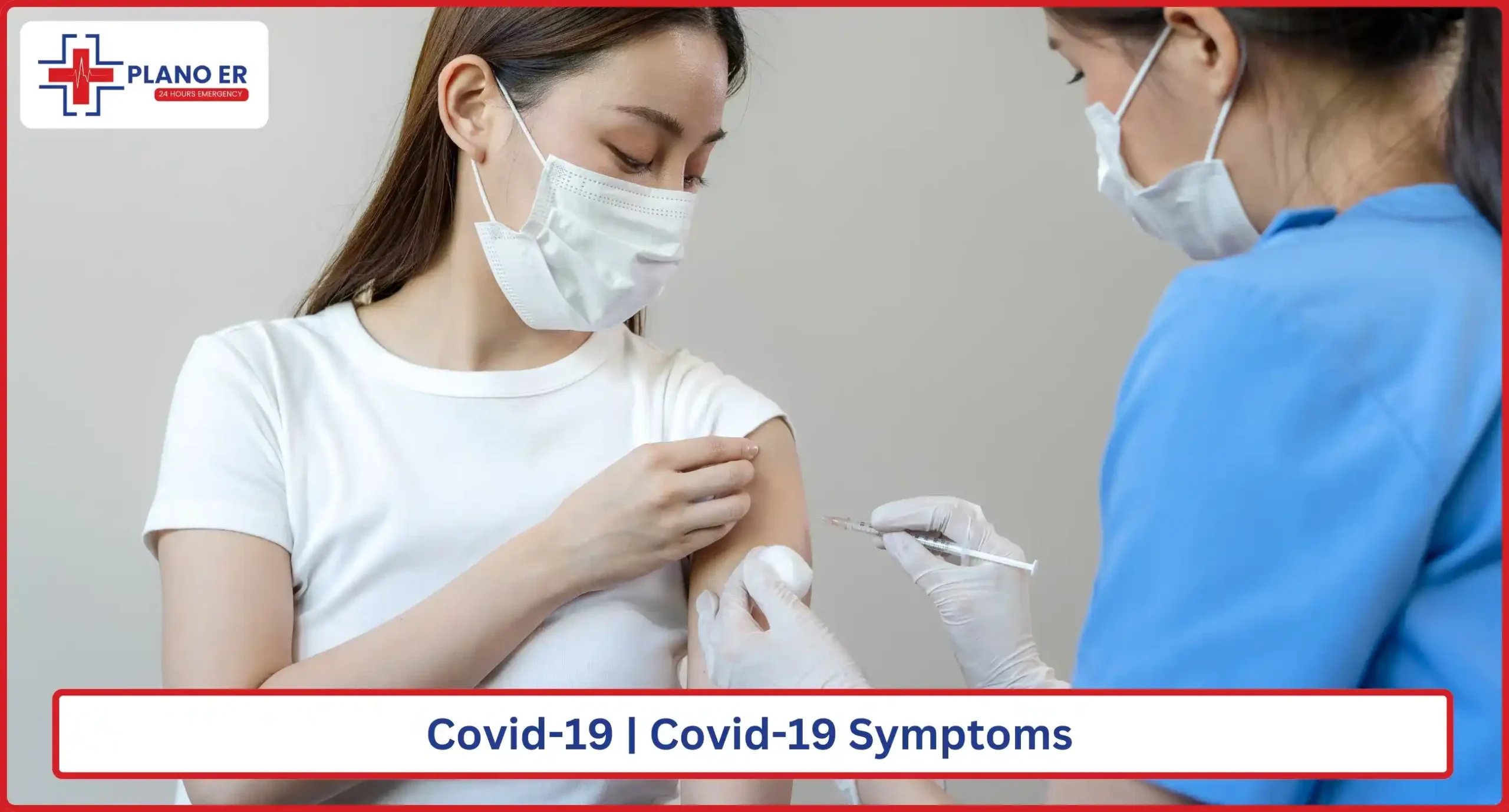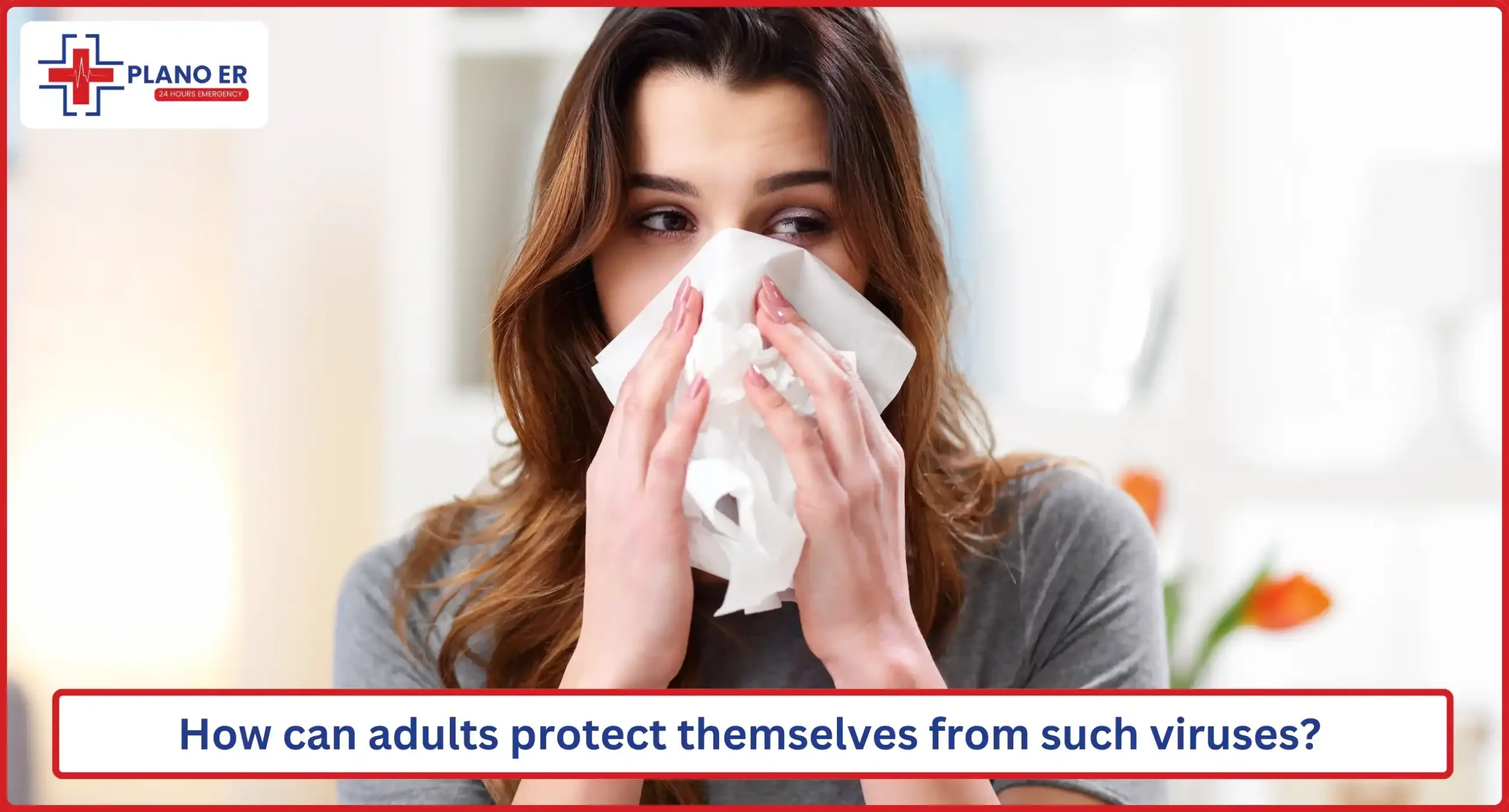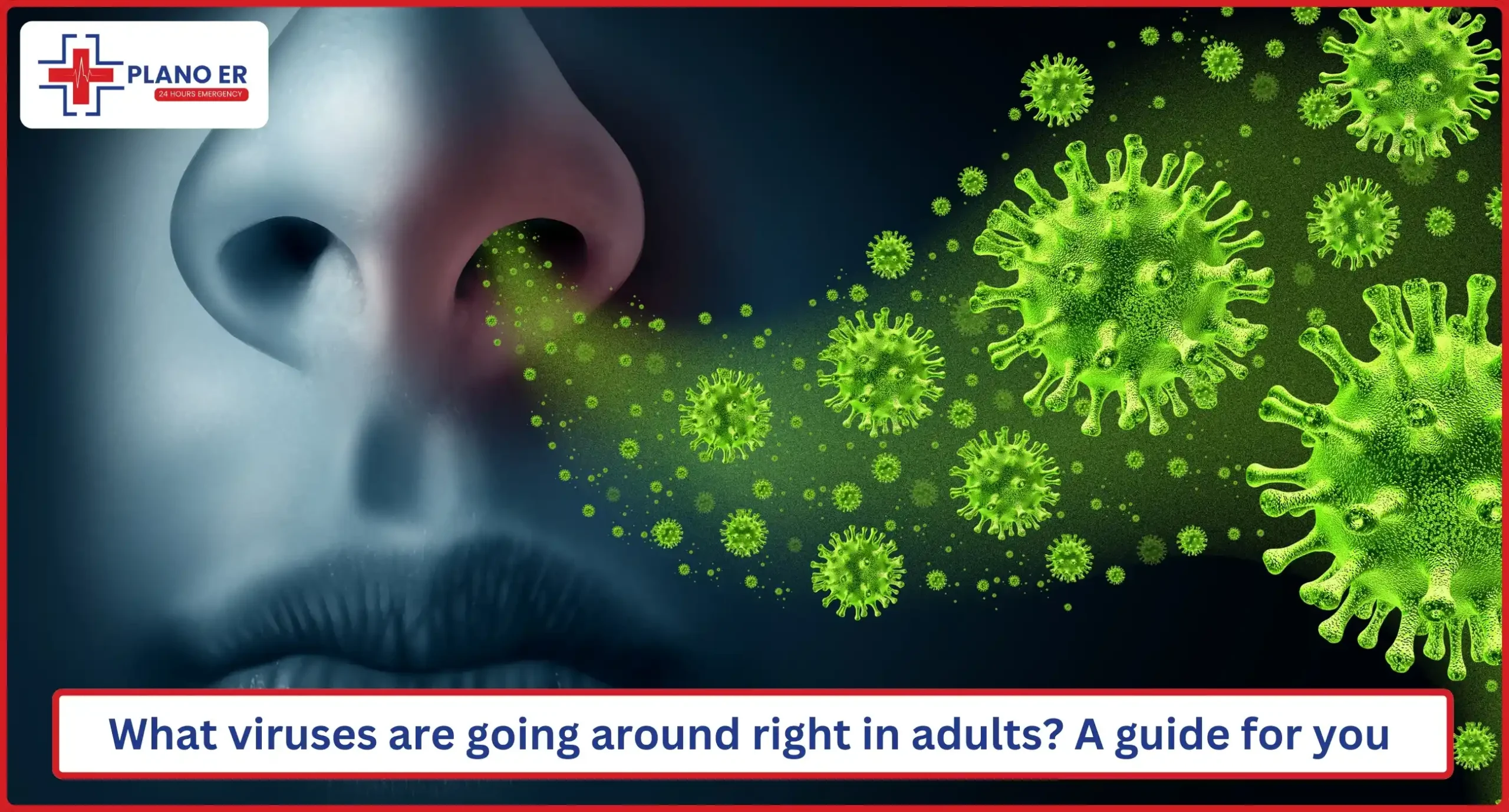Seasonal viruses are common in adults as they spread easily through workplaces, public areas, social gatherings, and institutions. In 2025, different viruses have hit adults, out of which a few commonly known viruses are COVID-19, influenza (flu), and RSV; moreover, a few viruses, such as norovirus, human metapneumovirus (hMPV), and walking pneumonia, are also detected in large numbers of people.
You can protect yourself and your loved ones from being infected by them by understanding these different viruses, their impact, early signs, and how they spread.
In this article, we’ll provide details on “What viruses are going around right now in adults?” so that you can prevent falling sick or take necessary actions when required.
Covid-19

The COVID-19 virus became extremely virulent during 2020 and created a pandemic situation. It is still significantly affecting adults in 2025, with its most recent XFG “Stratus” variant. This virus was controlled with the help of vaccines, but despite the vaccines.
Adults with weakened immune systems, chronic problems, and elderly age are at a higher risk of complications. The majority of the infections relate to flu-type symptoms. However, in the current period, it is less dangerous than it was during the pandemic.
Covid-19 Symptoms
The most common signs reported are as follows:
- High fever, headache, and body pain
- Sore throat, coughing, and sneezing
- Nasal congestion
- Fatigue and muscle pain
- Nausea and vomiting
- Night sweats and a dry cough
Experiencing COVID-19 signs? Do not hesitate to visit us at Plano ER, where we offer detailed COVID-19 tests with same-day, accurate results.
Influenza
Currently, influenza is referred to as flu, and it is one of the most common respiratory viruses adults face in 2025. It is a highly contagious respiratory infection and is most commonly noticed in type A and type B. This virus becomes more active during winter.
It easily spreads in humans through coughs, sneezes, or even while talking with an infected person having strep throat. This is because it spreads through the respiratory droplets of the infected person.
Symptoms of Influenza
Below are a few common signs of influenza:
- High fever and muscle pain
- Strep throat and dry cough
- Runny nose and severe body ache
- Fatigue and loss of appetite
- Chest discomfort
Influenza creates a high risk of complications for adults over 65, pregnant women, and people with a weak immune system. In some cases, it might lead to bronchitis requiring a bronchitis treatment.
Norovirus
Norovirus is among the common causes of viral gastroenteritis, which is often referred to as stomach flu. It is a highly contagious virus that spreads through consuming affected food and touching an infected person. Norovirus also causes abdominal pain, as it causes uneasiness in the stomach area.
People with weak chronic illnesses, such as kidney disease and heart problems, get easily infected by norovirus. People with norovirus at times feel severe dehydration. Currently, there is no vaccine for norovirus, but researchers are working on creating a vaccine.
Common Norovirus Symptoms
The signs of this virus become active 12-48 hours after exposure and last for 1-3 days. An infected person might experience the following signs:
- Nausea and vomiting
- Dehydration
- Low-grade fever, body pain, and headache
- Abdominal pain
- Severe diarrhea
Human Metapneumovirus (hMPV)

Human Metapneumovirus, abbreviated as hMPV, is a respiratory disease that has flu-like symptoms that become common during winter. It can spread through the droplets of an infected person.
This infection is less common, but since there is no direct treatment for hMPV, it is important to know about its signs and effects. It can be prevented by staying healthy and avoiding interaction with infected people. Since its symptoms relate to flu and cold, it is difficult to identify whether it’s human metapneumovirus or not.
hMPV symptoms in adults
Below are its common signs to watch out for:
- Cough and sneezing
- Fever and fatigue
- Shortness of breath
- Headache and body pain
RSV (Respiratory Syncytial Virus) in Adults
Respiratory Syncytial Virus is most commonly found in children, but it also affects adults. It is a contagious respiratory virus and easily spreads through droplets of the infected person. People infected with RSV experience cold-like symptoms.
People with chronic lung problems, heart disease, and asthma are at a higher risk. When this infection is around, it is important to take strong paediatric care, as this virus is most common in children, known as a childhood illness. It is mainly caused by Bronchiolitis, when bronchioles become inflamed.
Signs of Respiratory Syncytial Virus
Below are a few common symptoms of RSV:
- Shortness of breath
- Sore throat and runny nose
- Dry cough and wheezing
- Fatigue and headache
- Low-grade fever
High fever and flu-like signs should not be ignored. It is recommended to immediately get a lab testing done to know the root cause.
Walking Pneumonia
Walking Pneumonia is caused by the bacterium Mycoplasma pneumoniae. It does not have a severe negative impact, and an infected person can perform their daily activities and walk while being affected. However, if it is not treated, it can result in severe complications.
This respiratory infection spreads through airborne droplets. It mostly spreads in crowded areas, and people with a weak immune system or chronic health diseases cannot easily fight off this infection.
To stay protected, it is recommended to stay at home during flu season, as walking pneumonia, Mycoplasma pneumoniae, in adults becomes common.
Common Walking Pneumonia signs in adults
- Chest discomfort and muscle pain
- Sore throat
- Fever and headache
- Persistent dry cough
How can adults protect themselves from such viruses?

Whether you’re suffering from the quad-demic viruses in adults or respiratory infections, the prevention tips are almost the same. Since the majority of seasonal viruses in adults now have the same effect on the body, the prevention tips are also identical.
Below are a few common prevention tips:
- Wear a mask in public areas
- Stay hydrated and keep a healthy diet
- Stay clean and take care of hygiene
- Avoid interacting with people when the virus is around
- Do not interact with others and take good rest if you feel sick
Want to know about helpful prevention tips? Contact us to know more about viral infections and how to prevent them.
Stay informed and protected
The majority of the viruses common in adults can cause risk if not treated. It is important to protect yourself from these viral infections, as they can go from mild to serious if not protected. By knowing about what viruses are going around right now, you can stay protected and take necessary precautions.
These viral infections can easily spread from one person to another. As during winter seasons they become active, it is best advised to avoid staying in public during cold seasons.
Whether it’s COVID-19, influenza, RSV, norovirus, hMPV, or walking pneumonia, with good hygiene and a strong immune system, you can fight through the virus and improve your health.
Frequently Asked Questions (FAQs)
What new viruses are going around the world?
Currently, the most common viruses are COVID-19, influenza, respiratory syncytial virus, and norovirus.
How long does a viral infection last?
Depending upon the severity of the infection, a viral infection lasts for a few weeks.
How to know if your body is fighting a virus or not?
If you experience common signs such as fever, flu, and body pain, then that means your body is fighting through the virus, and in response to that, it appears in such signs.
What are the basic prevention tips to fight through these viruses at home?
To prevent these viruses, it is best advised to stay home, take rest, have hot liquid intake, and medications as prescribed by the doctor.






